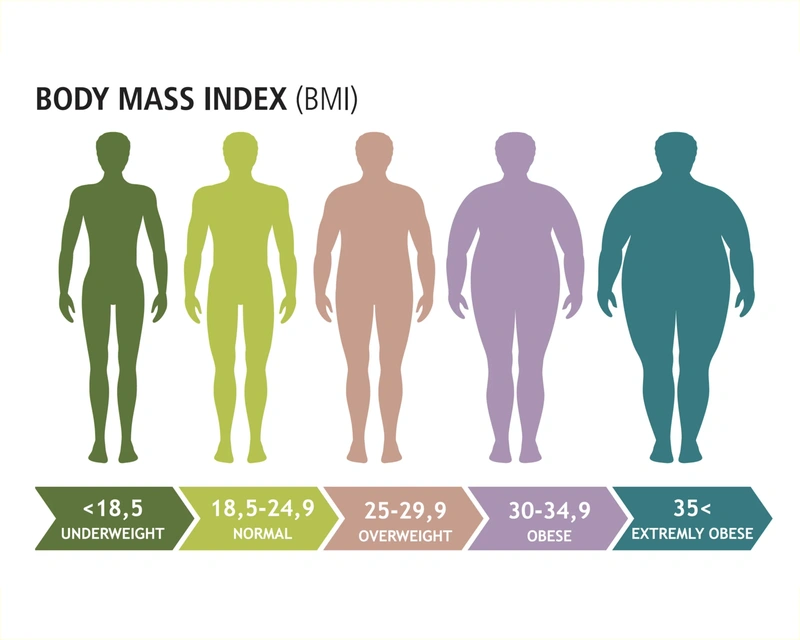
BARIATRIC SURGERY CRITERIA
Our expert bariatric team will carefully and responsibly assess your needs and eligibility for the weight loss operation from your -
- BMI (Body Mass Index),
- previous medical history and existing medical conditions,
- personal readiness to commit to mindset, dietary and lifestyle changes after the bariatric surgery.
Body Mass Index (BMI)
The Body Mass Index as an indicator of the obesity of the human body was initially developed by the Belgian statistician Adolphe Quetelet in 1850ties and is expressed as the person’s weight divided by person’s height square.
International classification of adult weight categories:
- BMI under 18.5 – underweight
- BMI 18.5 – 25 – normal weight
- BMI 25 – 30 – overweight
- BMI 30+ – obese
- Obese class I – BMI 30 – 34.99
- Obese class II – BMI 35 – 39.99
- Obese class III – BMI 40+
Body Mass Index criteria for weight loss surgery:
- BMI over 30 / 33 and you suffer from diabetes type II or other obesity related health issues and / or have tried conservative weight loss methods with no long term success;
- BMI over 35 with or without obesity related health conditions.
Our BMI calculator will let you easily calculate your BMI.
Health & Psychological Conditions
For us the most important is patient's safety, longterm success and wellbeing. Therefore, our expert bariatric team will carefully evaluate your:
- Medical history. General health condition, previous surgeries, diseases, medications, family medical history. It will help to prevent risks and choose the most effective and safe type of weight loss surgery for you.
- Dietary habits, lifestyle and your previous weight loss attempts.
- Physical activity or inactivity. Physical activity is definitely related to improved health and higher energy levels, while physical inactivity might be related to the development of obesity. If you consider the weight loss surgery, you should understand the correlation between physical activity and lifelong management of obesity.
- Psychological factors. After the weight loss surgery you will need to change and adjust permanently your eating and dietary habits. More likely you will have also to review your physical activity and find your own way to a healthier and happier you! These changes may lead you to altered and new feelings and sensations, new behaviours, probably to some relationship changes too. Before making the final decision about the bariatric surgery, you and your surgeon will discuss your personal consciousness and your ability to involve in the weight loss and maintenance process forever.
Personal Commitment
Weight loss surgery should not be considered a magical solution itself. One of the most important things for a lifetime success after your weight loss surgery is personal commitment to mindset, dietary and lifestyle changes. It is critical to assess your weaknesses already upfront the surgery to be able to really change your understanding, perception and daily habits. We at Weight Loss Latvia team always encourage our patients to seek psychological, dietary or physiotherapist's help according to the person's needs.
SEND YOUR QUESTION TO US AND WE WILL GET IN TOUCH WITH YOU!